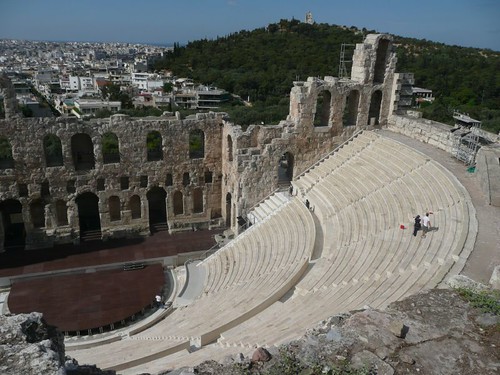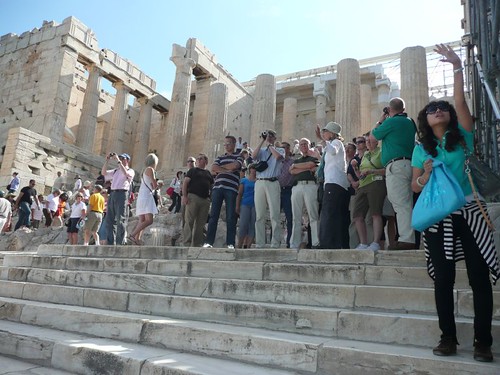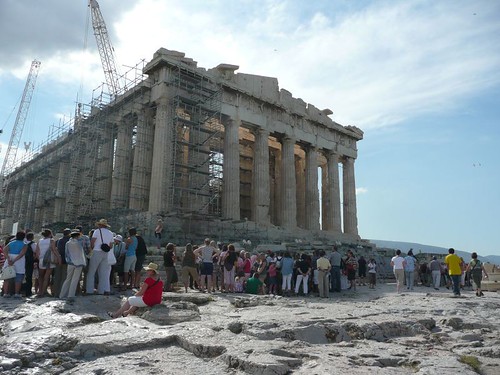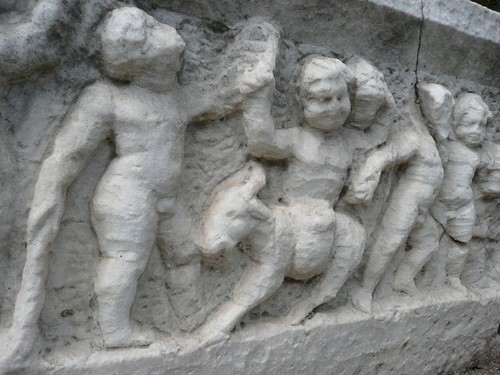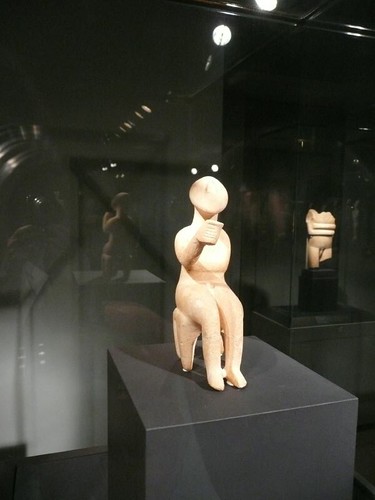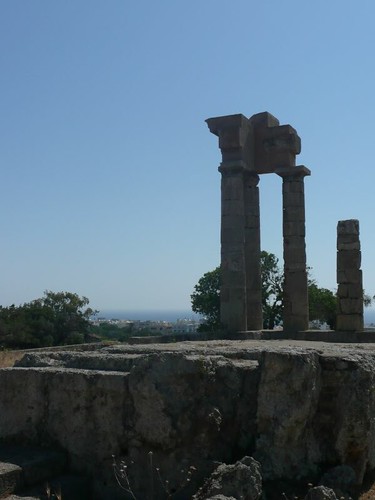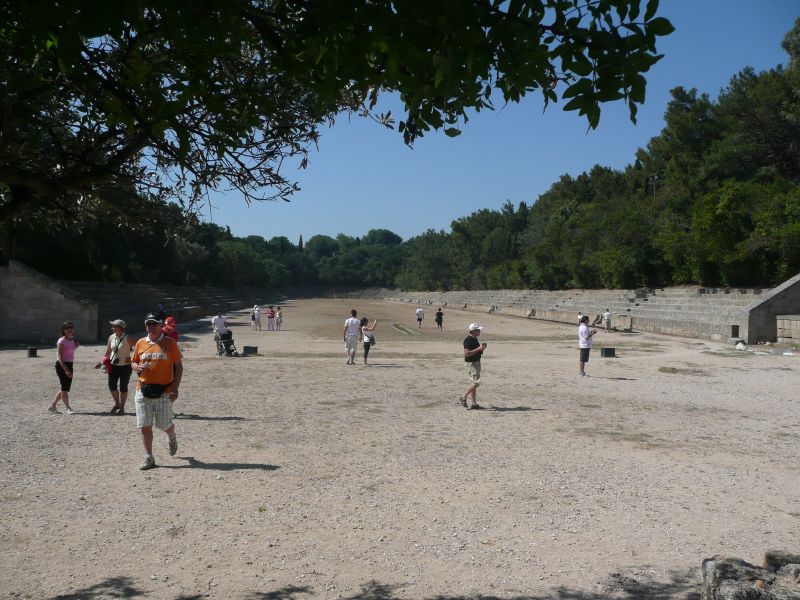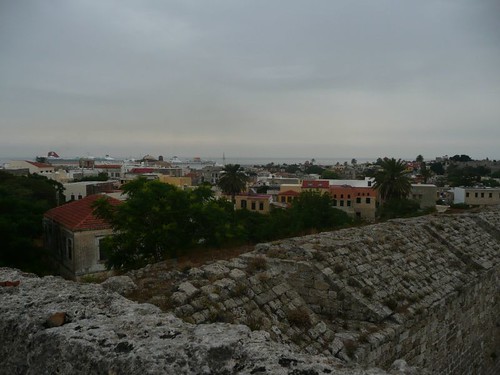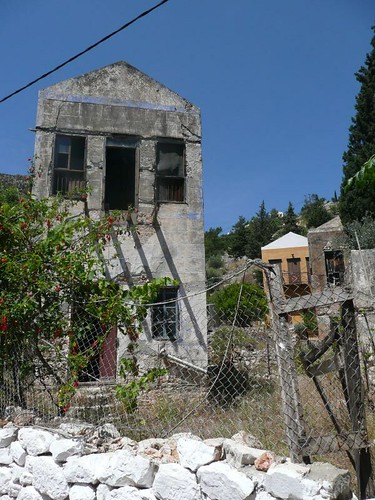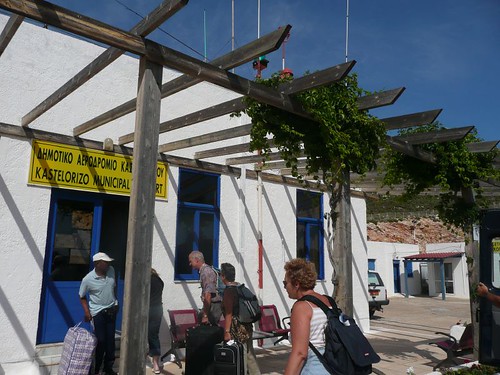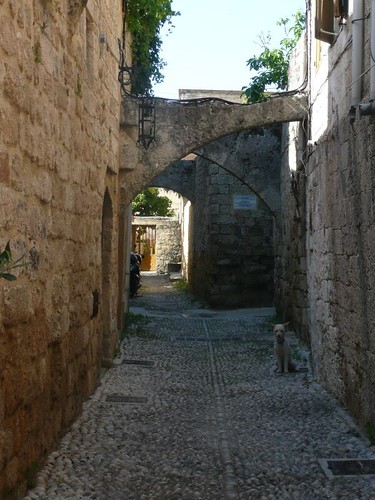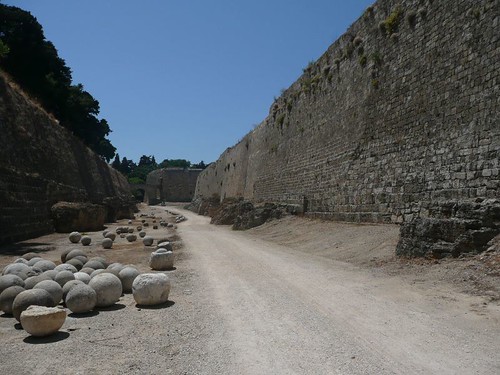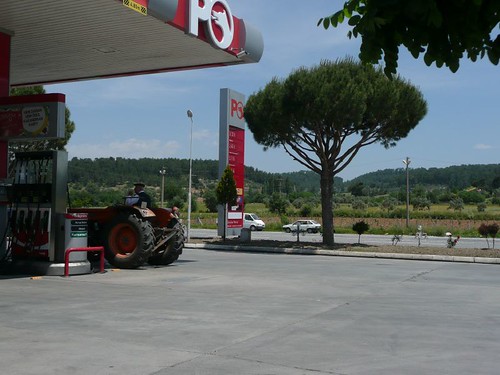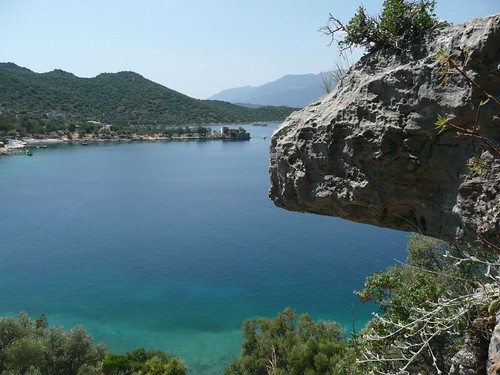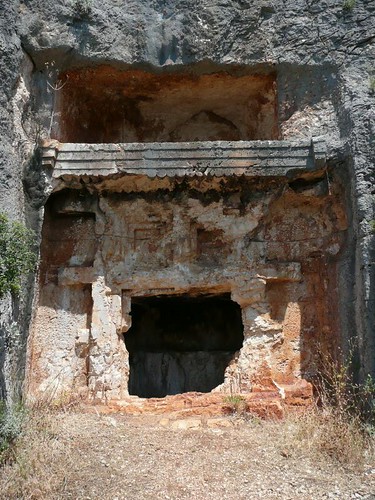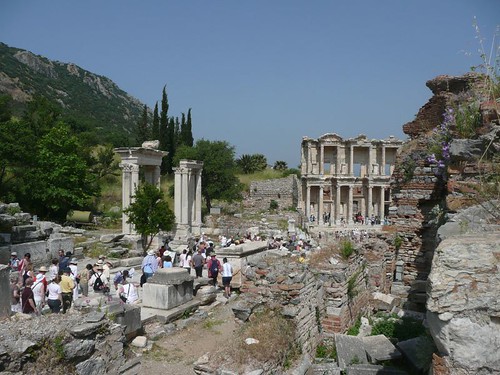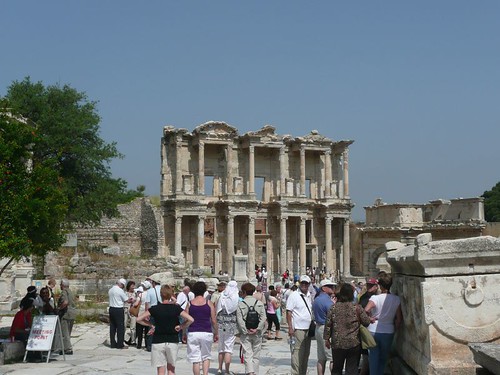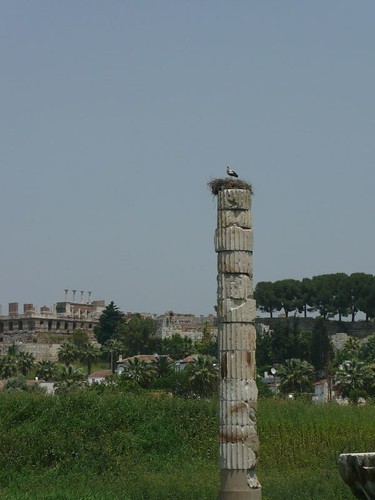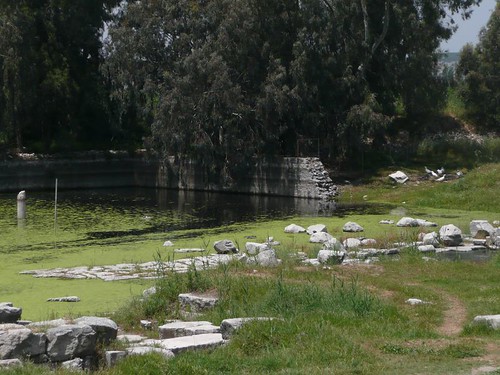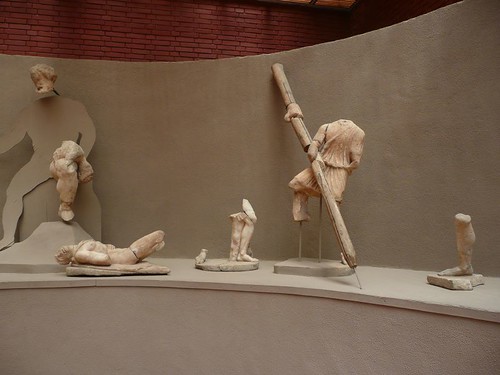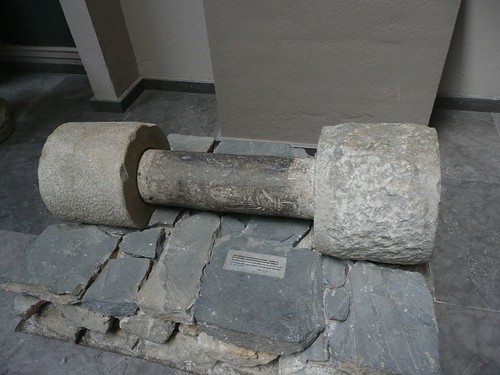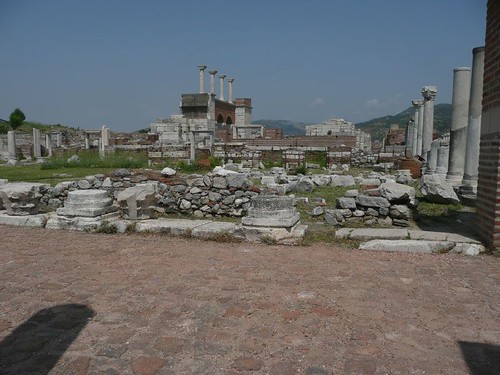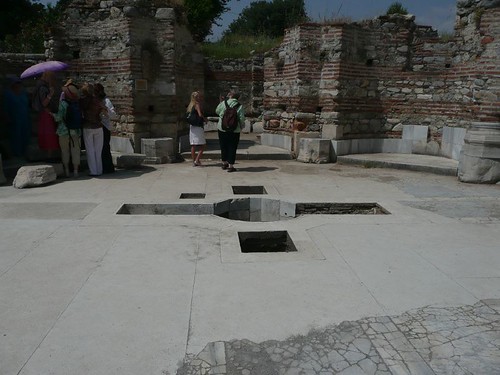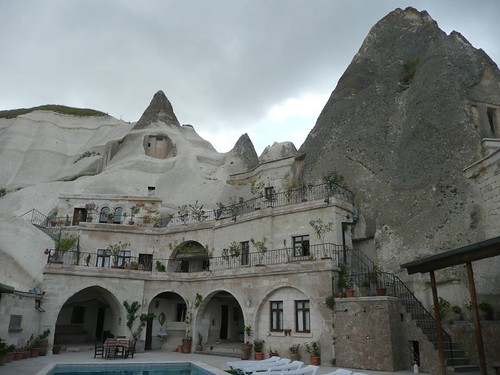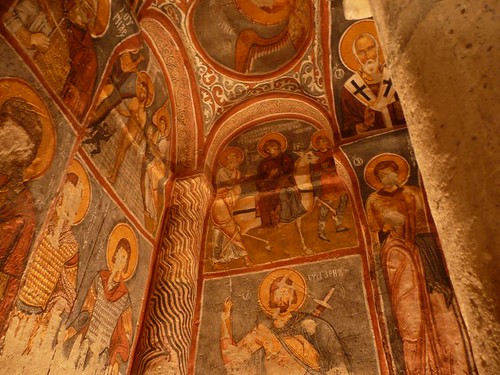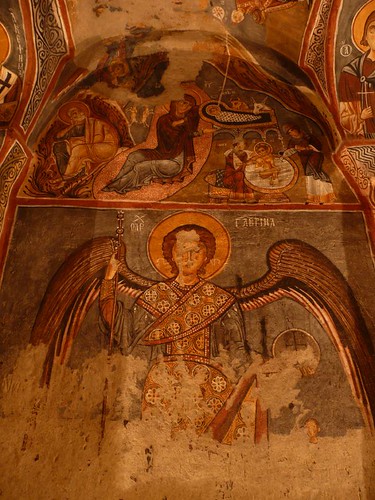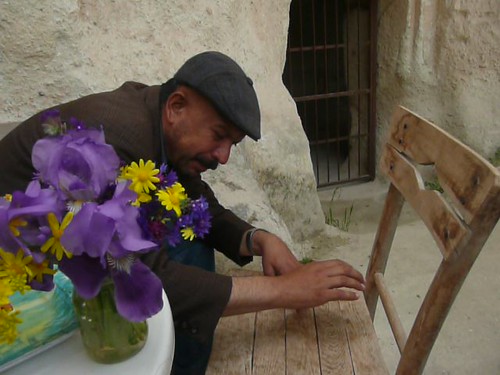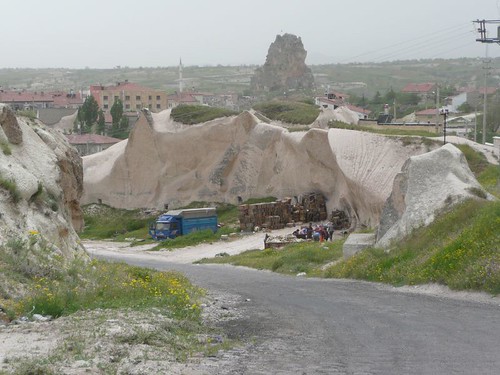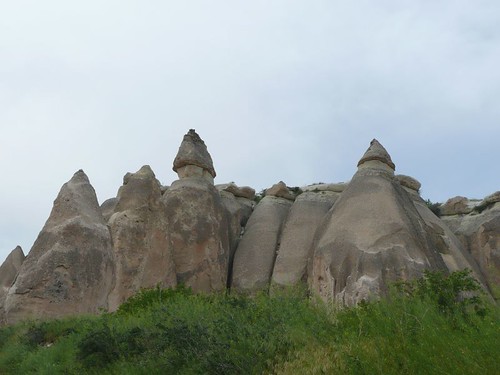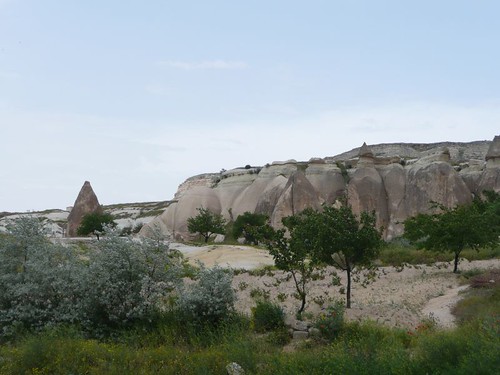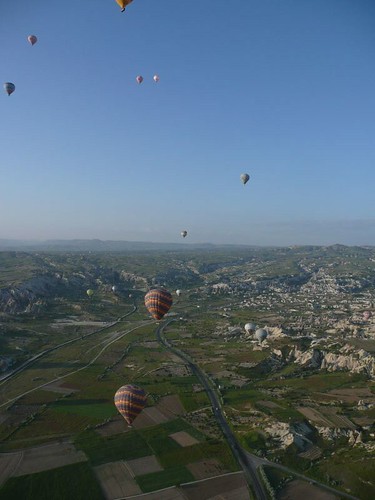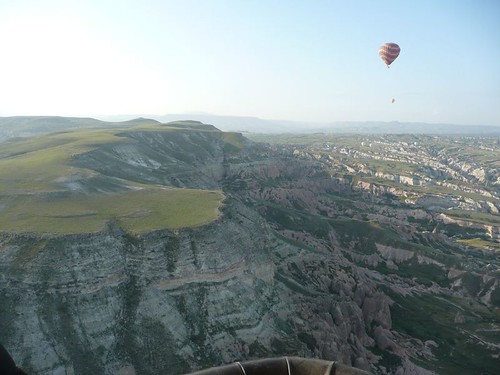A brief diversion from an account of my trip to talk about a few things people have been asking me about (in real life, not on the internet, but hey, maybe someone out there will get some use out of this).
I know that before I came to Turkey I wondered a lot about what it would be like to travel there on my own, as a woman - whether it would be safe, whether I would be extraordinarily conspicuous, etc. I have friends and acquaintances, male and female, who had traveled to Turkey in pairs and small groups, but I didn't know anyone who'd gone to Turkey on their own, male or female. None of my friends who'd been to Turkey urged me to go on my own (one of the things about traveling solo is that your friends don't necessarily learn a lot about your travel style!), but none of them said, "God, no, don't do it!" So, I took to the internet to hear what other women trave ling alone had thought about Turkey. I found a lot of encouraging firsthand stories, a few people who had been miserable, and some news and guidebook accounts of actual crimes and other horror stories.
But you know, I think by the time I started looking at other women's stories, I'd already made up my mind to go. So if you're a woman (or a man) who's already decided to go to Turkey on your own, go ahead and read this post for lots of reassurance and a few caveats and cautionary tales.
Now, for starters, solo travel is not for everyone, period. Some people don't like traveling alone, and I think this is largely a personal temperment issue. Solo travel in general and its challenges and rewards is probably worth a whole blog entry of its own (which I may even write at some point!), so for now I'll just talk about Turkey specifically.
Lots of people have asked me if I felt safe in Turkey, and overall I would say yes. I acknowledge that the risk of being affected by a terrorist attack is probably higher than in the US or Western Europe, though still extremely unlikely. As far as crimes against my person (attack, robbery, rape, whatever), I can 100% say that I never once felt that I was at risk of bodily harm from another person. I did get lost more than once, and that was unsettling and a bit scary, but realistically I do not think I was in any actual danger (other than the danger of needing to take an expensive taxi ride to get where I needed to go!).
I was appropriately cautious; I did not stay out very late, I kept to well-populated areas, especially at night, I did not drink to excess or use any mind-altering substances, and I was vigilant about what was going on around me. I'm a reasonably street-smart person - I used to work in an inner-city hospital complex until midnight, then take the bus home, and I never came to any grief there - and I used my own good judgement.
The time I was most scared, and probably in the most actual danger, was when I got lost in the scrub forest in Kas. This was my own fault for wandering off the trail, and I would have been in just as much danger if not more if I'd been in the mountains of my native New England (in Kas, I at least had a great mobile phone signal, which you can't count on in the White Mountains!). Even then, though, because I'd taken appropriate precautions, the risk I ran was pretty small - I had a mobile phone that I could use to call for help if necessary, I had a whistle, a flashlight, a small first-aid kit, food (dried fruit) and water, and I had good long-sleeve, long-trouser, synthetic hiking clothes. I might have really annoyed my hotel and the local police if I'd had to call for help, but there was never really any risk that I wouldn't be able to get out!
I would say that as far as physical danger goes, you can greatly reduce the amount of risk you run by observing a healthy level of caution, being prepared, and thinking things through. Also, if you know you're prepared, you'll feel a lot more comfortable! (Just don't get too comfortable and stop observing your healthy level of caution...)
A couple of people have asked me about food safety - I didn't drink tap water, but I wasn't particularly careful otherwise, and I felt 100% fine. I ate raw fruit and vegetables without worrying about whether they'd been peeled or how they'd been washed, and a lot of the food was served lukewarm, which I know are all the red flags you're supposed to avoid, but I never had any problem. I do have a stomach of steel, though; I've never had food poisoning that I can remember, and I seem to be able to eat whatever I want, whenever I want, with basically no ill effects (besides weight gain). I think the cure for IBS is lurking somewhere in my digestive tract (OK, gross image; we'll move on now). Obviously if you have a more sensitive stomach you might want to ease into things and be more cautious.
Enough about danger - let's move on to "hassle". In the touristy parts of Turkey that I visited, people (and by people I mean men, actually) are constantly asking you, "Where are you from?" and "What is your name?" and "Are you lost?" I found it a little bit exhausting, just because there are so many of them; individually they're no more annoying than many Save the Children and Greenpeace canvassers I've encountered at home. Mostly I was able to ignore them or develop a sense of humor about it - when I ignored one guy who asked me where I was from he said, "Are you Japanese?" and I said, "Yes, konnichiwa!" which he thought was pretty funny. And I just had to bust out laughing when one guy asked me "Are you lost?" while I was standing directly in front of the Aya Sofya! I don't think it would be possible to be less lost anywhere in Turkey - it's surely the most famous and recognizable landmark in the country.
Constant questioning aside, I did feel very
observed on occasion. More than once when I was wandering around in Istanbul I would suddenly find myself in a bustling street (just beyond a touristy area) that was full of men, with no women at all besides myself. It was disconcerting! I don't recall ever finding myself in that situation in North America or Western Europe. It certainly made me feel like I stuck out. In Ankara, also, I felt like people were paying me more attention than I would have liked. But what can you do? I did try to maintain a low profile in terms of my appearance, but I was clearly not Turkish, and clearly a tourist.
I did run into one scam (um, one scam that I noticed, anyway), at the Nevsehir bus station - as described in many other travelers' reports and in all the guidebooks, people at Nevsehir bus station will try to scam you into taking their taxis and private transfers to Goreme and Urgup, rather than the bus company transfer included with your bus ticket. Be prepared and don't fall for it. Make sure you buy a through bus ticket to your final destination, and if you do have to transfer make sure you find the real transfer bus (it will be the one
without a bunch of guys trying to talk you in to taking it!).
Another question people have asked me is "What did you wear?" and "What do women wear in Turkey?" I wore long sleeves with highish necklines most of the time, but this was actually as much for sun protection as it was for modesty (I am of the Pink race). I was traveling light, so I brought one pair of (quick-drying, nylon) trousers and one skirt (likewise a wringable, comfy breathable polyester knit) and some long-sleeve shirts. I also brought a couple of t-shirts (and I didn't feel conspicuous in these, either) and a couple of sweaters (almost completely unnecessary - should have left them home!).
As for what how other women dressed, I saw people wearing just about any old thing you've ever seen on anyone - Western and East Asian tourists in tank tops, shorts, beach caftan coverups, jeans, t-shirts, sundresses, a kameez top from a salwar kameez with no trousers underneath (my personal favorite), and other tourists, pilgrims, and local women in various kinds of Muslim traditional dress from long sleeves and ankle-length skirts right on up to women in niqab/black face veils. All over Turkey I saw lots of women in headscarves and lots of women with bare heads. In Cappadocia I saw lots of women in traditional salvar trousers (I can't find any good pictures but basically they have as much fabric as a skirt and a very low crotch, well below the knee; I wish I'd taken photos but I hate asking people if I can take their photos). I saw lots of women wearing variations on these drop-crotch trousers in Greece and Madrid, and I remember seeing those kinds of trousers on
The Sartorialist (a fashion blog). I guess I should have bought some - I'd be tres chic! But I'm not sure tres chic is really the way to go in Boston. We're simple people; frumpy and content to stay that way.
The last thing I should mention is the Turkish language. People didn't speak as much English as I expected; not that I have any right to complain about this, as I am pretty monolingual myself. But I didn't do much to prepare myself at all. I wish I'd at least brought a proper phrasebook, rather than relying on the abbreviated one in the back of the Lonely Planet guide. Turkish mostly just washed right over me. I think by the end of two weeks I knew maybe 15 words of Turkish, five of which I've now forgotten two weeks later (I definitely knew the word for "ten" at one point, but that's gone). My favorite Turkish word was "feribot" which, disappointingly, is just pronounced the like "ferryboat", not like some kind of exotic robotic ferry system.
One consequence of the language barrier was that it could be a bit lonely (constant "Where you from?" and "Are you lost?" queries aside). I only spoke with one or two Turkish women the whole trip; almost all of the women I spoke to were either expats living in Turkey or other tourists/travelers. This was a language thing and a cultural thing - my impression was that at least in the tourist industry the men were more likely to hold the public-facing jobs, and the women were more often working behind the scenes; women don't need to speak English to do these jobs, so they don't know English, and so even when I did interact with the Turkish women working at the hotels and restaurants I visited, we couldn't really talk (though some of them were incredibly friendly).
Anyway, to sum up: There are some dangers and annoyances in Turkey, as in anyplace worth going, but I found them completely manageable and worth it. If you can ignore a charity canvasser or a panhandler, you can ignore a Turkish carpet salesman (and the carpet salesman will be a lot more polite than either the canvasser or the panhandler). Read
Turkey Travel Planner and a guidebook or two or three before you go to give you an idea of what to expect. Think through a couple of worst-case scenarios (worst-case scenarios aren't as scary to think about if you're prepared for them). Even if you're uncomfortable in one part of Turkey there's probably someplace else that will be a perfect fit for you (it's a big country, and it offers a diversity of tourism experiences). Solo travel in Turkey can be loads of fun; it's probably not for everyone but it was great for me, and if you think it sounds good, go for it!
 photo by nessfc on flickr
photo by nessfc on flickr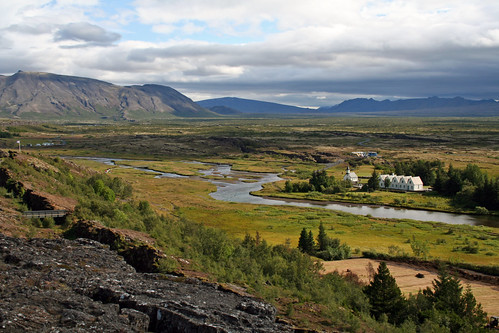 photo by strawberrymaya on flickr
photo by strawberrymaya on flickr photo by jkbashkin on flickr
photo by jkbashkin on flickr photo by dana_moos on flickr
photo by dana_moos on flickr photo by jmhullot on flickr
photo by jmhullot on flickr